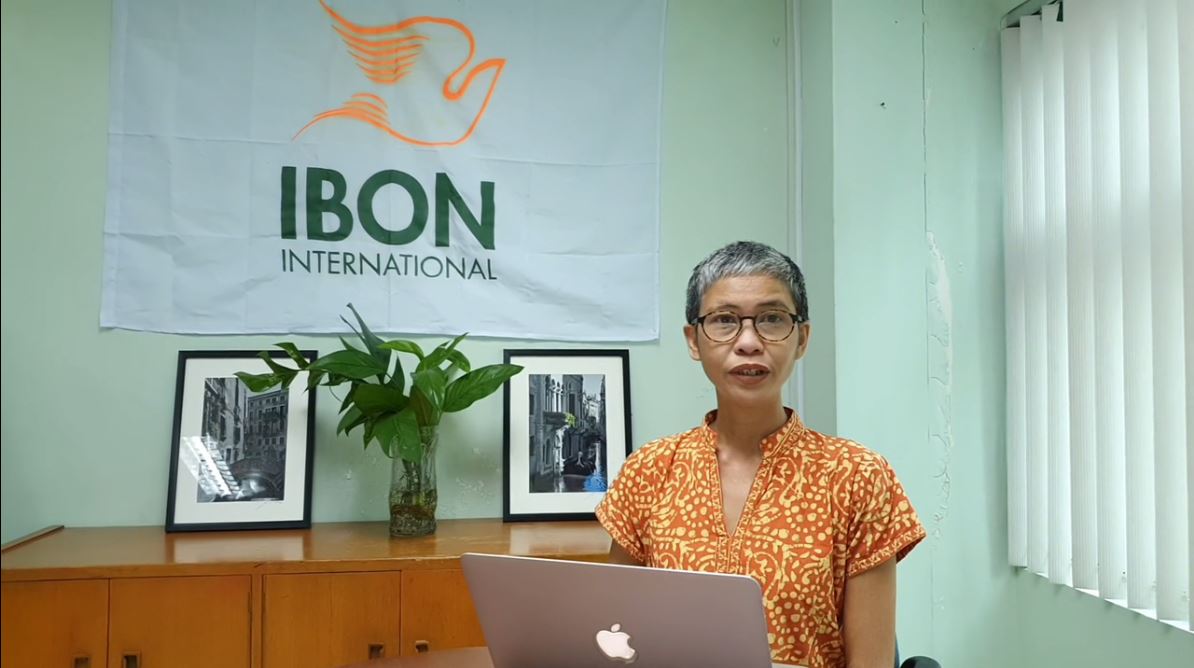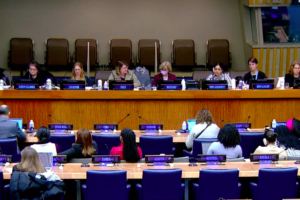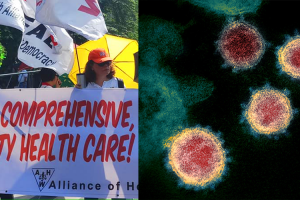This intervention was intended for the HLPF 2020 thematic session titled: “Responding to the economic shocks, relaunching growth, sharing economic benefits and addressing developing countries’ financing challenges.” It is being published with the aim of disseminating the position of IBON International and Asia Pacific Regional CSOs Engagement Mechanism on the subject.
Good evening, colleagues, ladies and gentlemen. I am Lorelei Covero of IBON International delivering an intervention on behalf of APRCEM on the HLPF 2020 thematic session: Responding to the economic shocks, relaunching growth, sharing economic benefits and addressing developing countries’ financing challenges.
The COVID-19 pandemic has laid bare the failure of neoliberal economic policy to serve the interests of the majority, leaving millions behind: in precarious economic situations with no access to essential services and healthcare.
With 10 years left in Agenda 2030, governments must address systemic barriers and steer away from the current model that with policy actions towards dismantling the neoliberal development framework, which continues to channel wealth and power to an elite few while impoverishing the rest of the population, disregarding human rights, and wrecking the planet.
Trade and investment policies should be reoriented towards transparent, participatory and redistributive rules that are people-oriented and guided by grassroots perspectives. Liberalization and deregulation policies have resulted in poverty, vulnerable work, increasing unpaid care work, resource grabs, and the transfer of environmentally destructive production processes to developing countries.
Providing enabling conditions for workers’ rights and welfare, especially the right to unionize, should be guaranteed by governments and employers. Policy reforms must ensure living wages, employment benefits, labor protection; and strengthen public services such as health, utilities, and education.
Debt relief is needed as decades of neoliberal policies in the global South have funneled billions to debt payments. If debts were proven to be odious or illegitimate, permanent cancellations must also be options.
Donor countries must uphold historical commitments in ODA and fulfill the 0.7% GNI aid target in the form of unconditional grants, not loans.
Billions of military spending should be rechanneled towards sustainable development. Militarism and the resurgence of patriarchal authoritarian governance prop up the democratic deficit in countries of the global South: peoples’ organizations, activists, journalists suffer through terror- tagging, illegal arrests, enforced disappearances, and extrajudicial killings. As democratic spaces disappear, harmful economic policies are implemented with the aid of military and paramilitary forces.
Finally: development cooperation and partnerships for sustainable and people-centered economies are incomplete without promoting and upholding people’s right to democratic participation in development.
Thank you very much.



